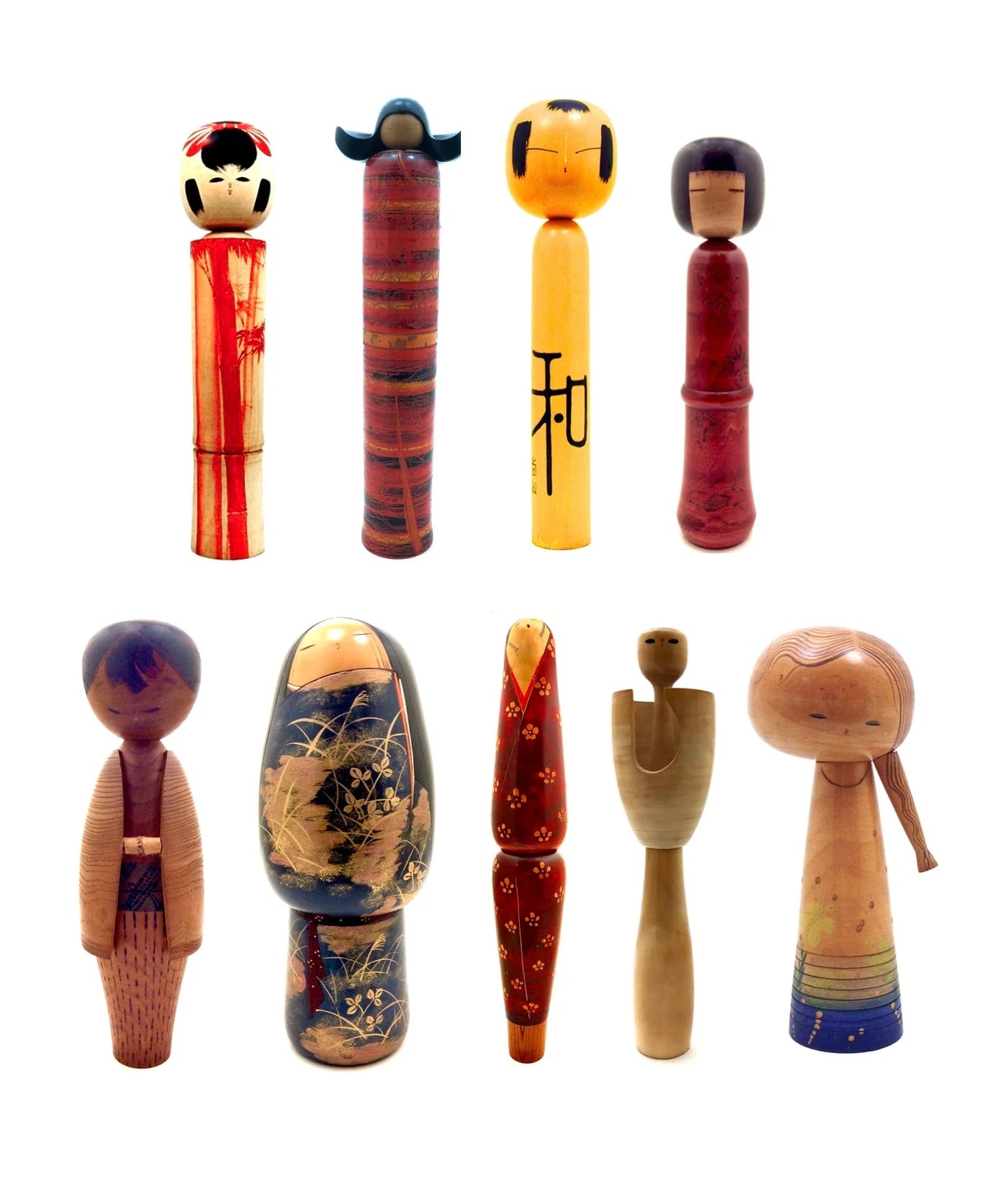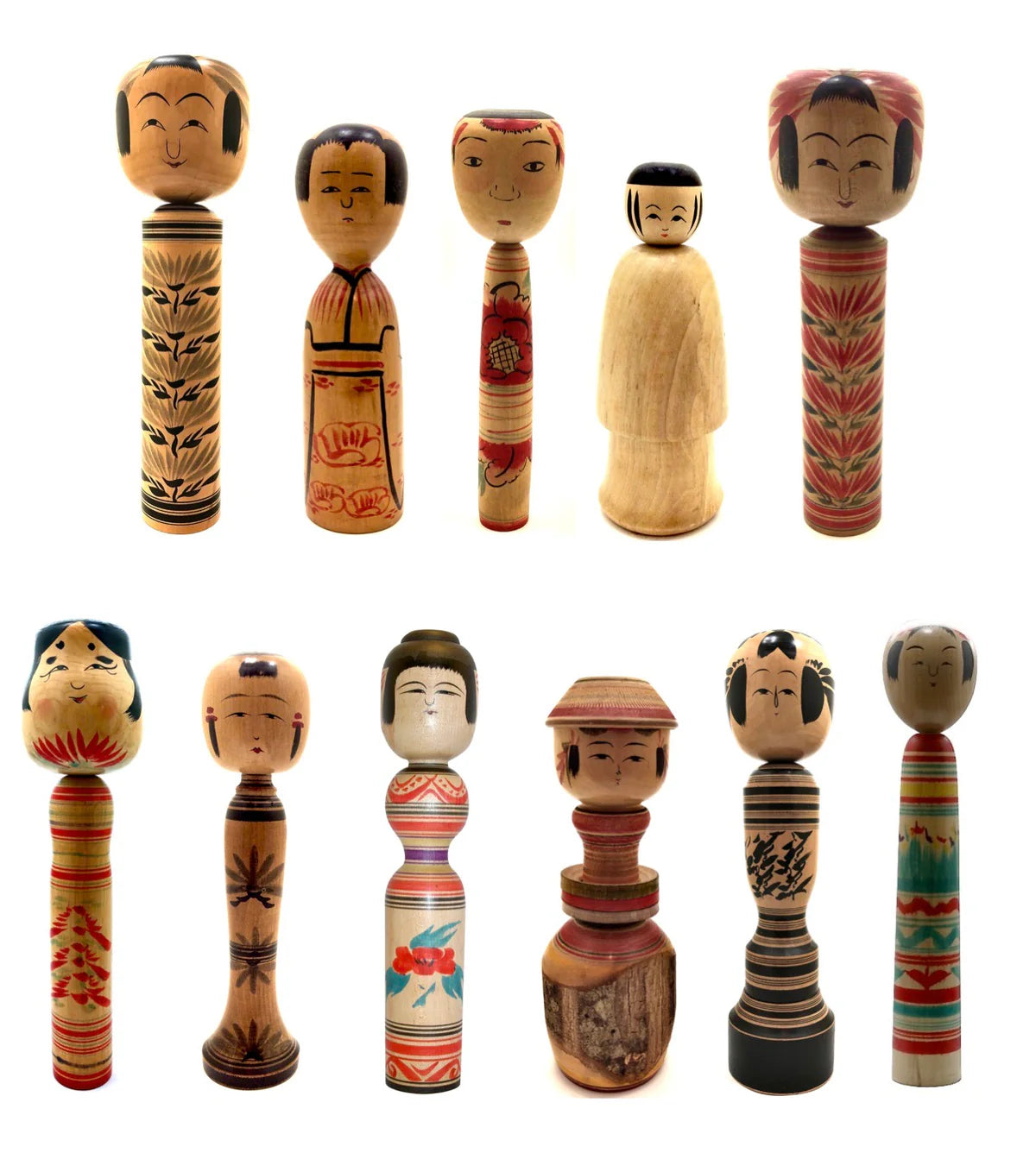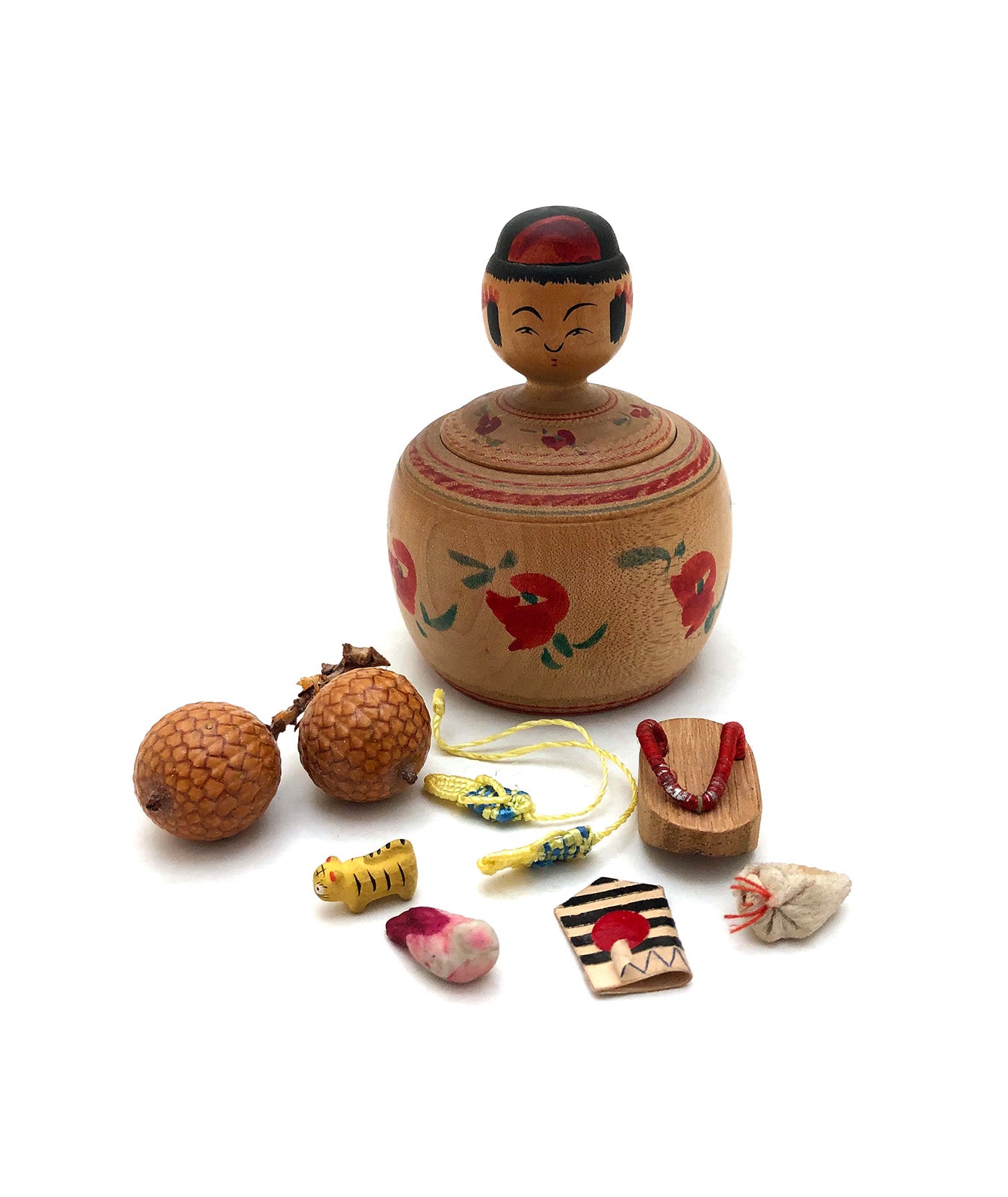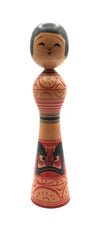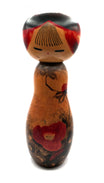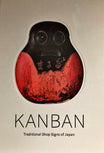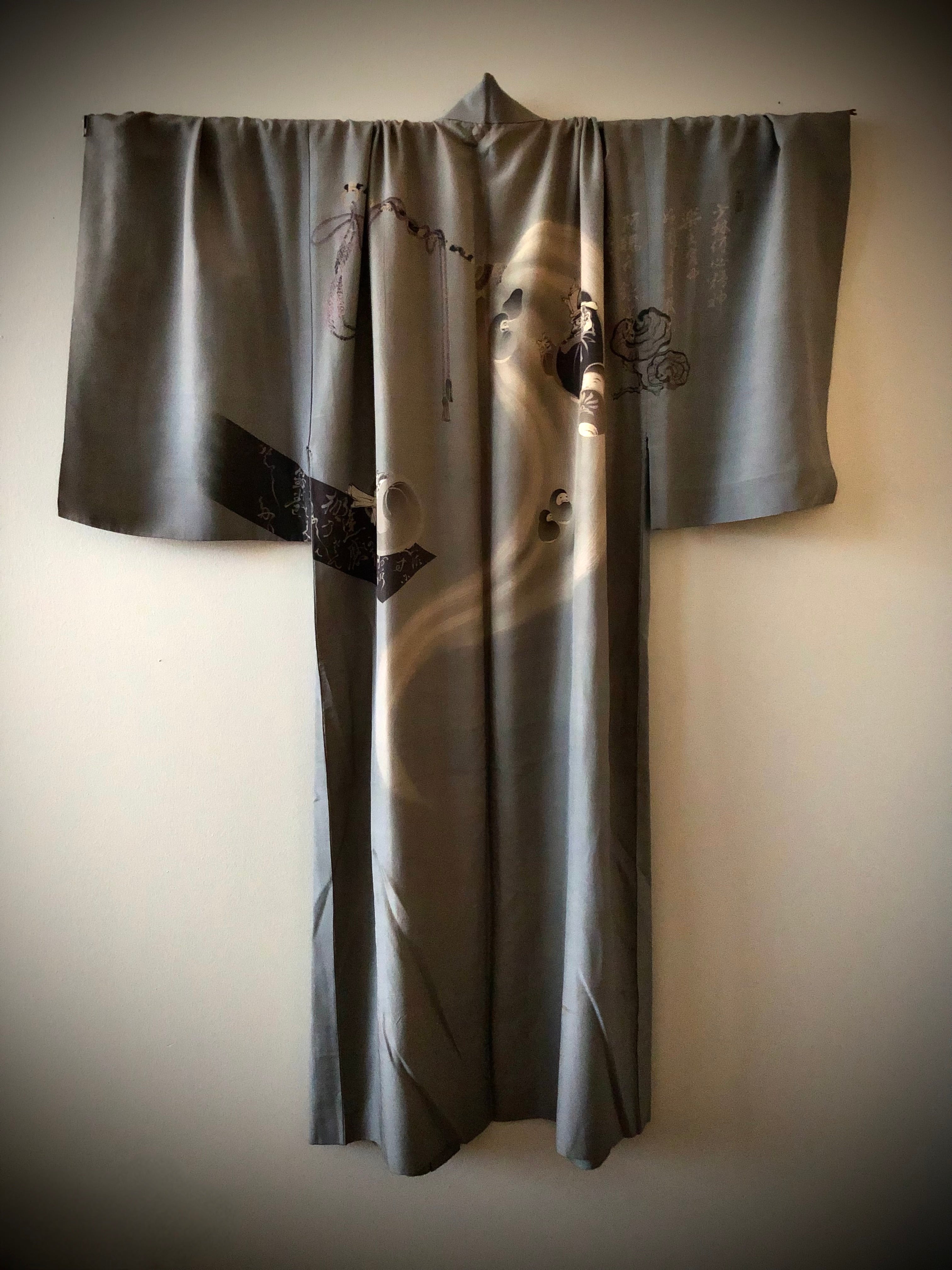
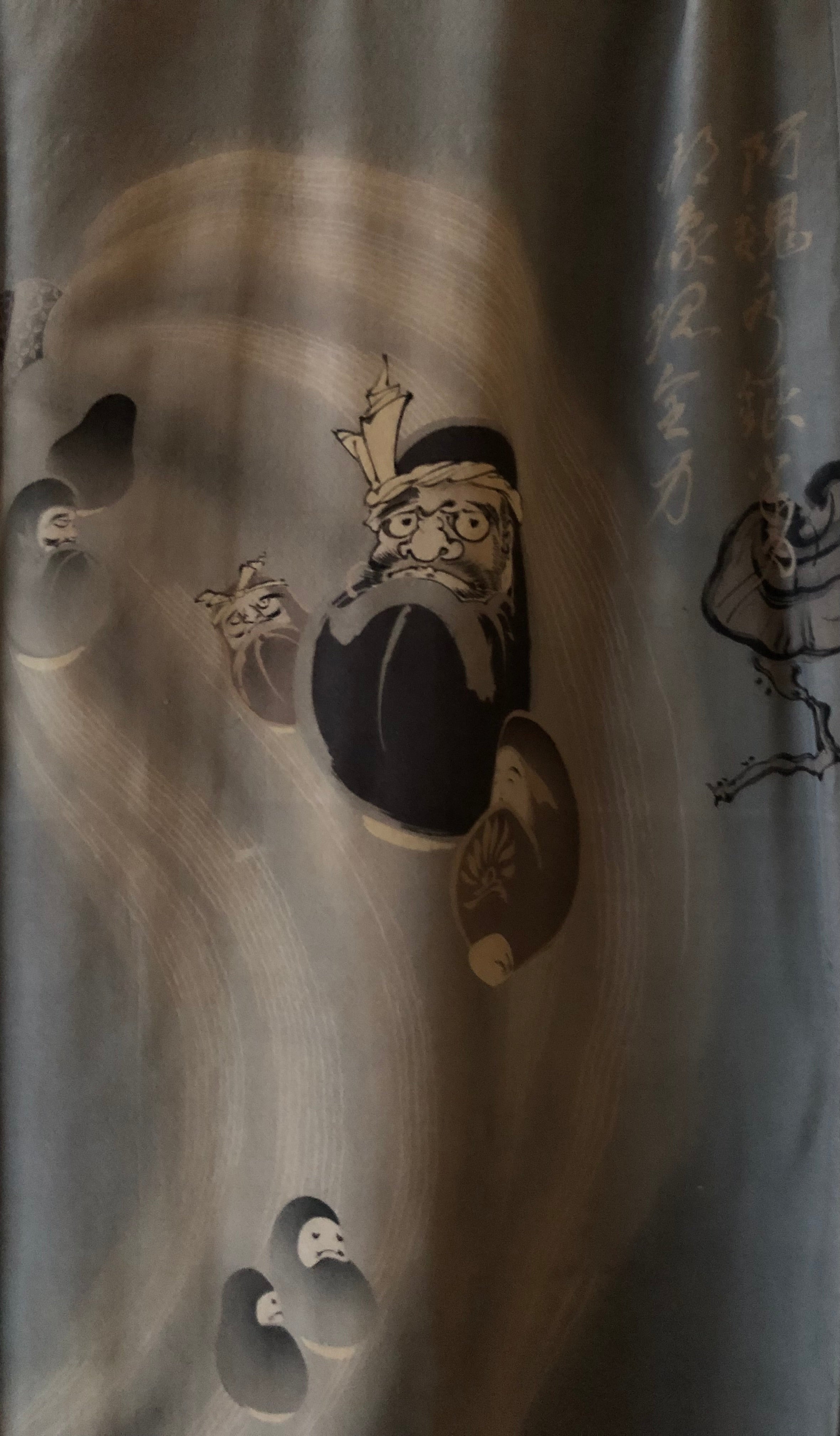
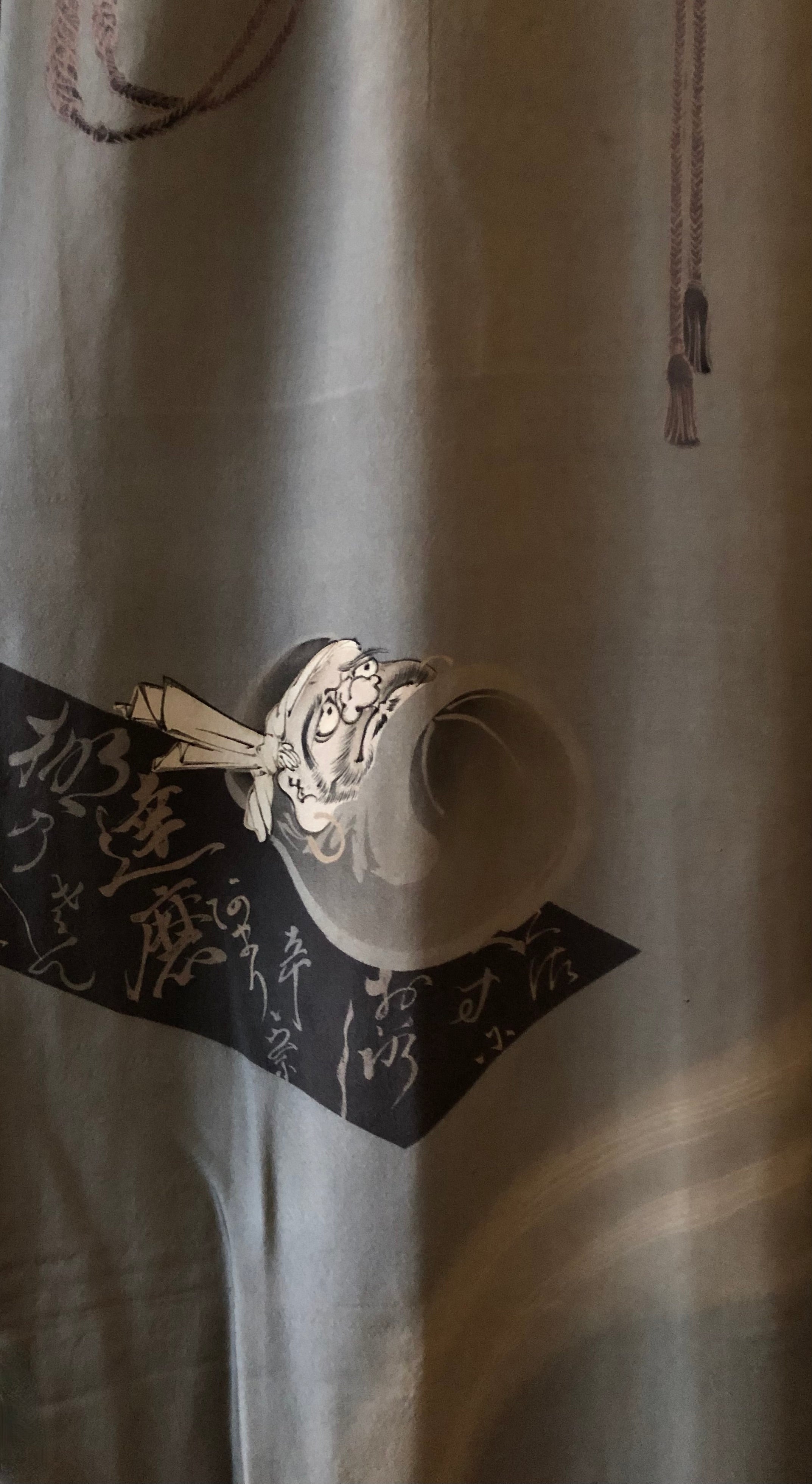
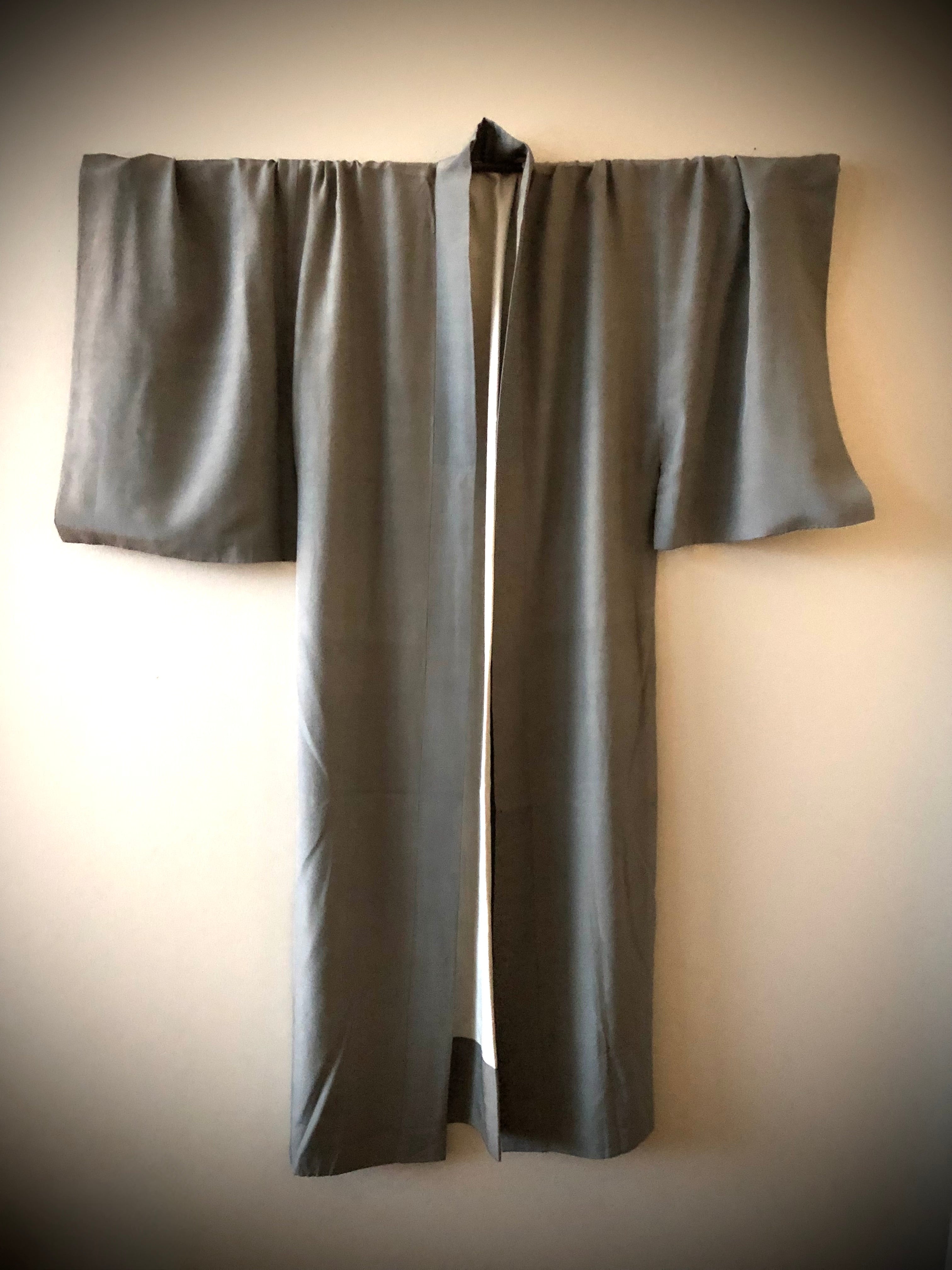
Japanese Vintage Gentleman Silk Naga-juban with Multiple images of Daruma
Dimensions: 51-0”l x 50-0”w
This very rare Naga-juban (meaning ‘long’ and Juban meaning ‘underwear’) was started in Japan for the modern female citizen. Still, men also wore these undergarments designed with stunning botanicals and images of important religious figures such as Daruma. Most of these long undergarments were made with Khaki Habotai Silk, (also known as “China Silk”) a fabric material used for expensive undergarments or nightware. It was designed to keep the kimono from getting worn or stained, and a subtle balance of the entire accompanying garments or worn alone as night clothing.
This soft silk Juban is brownish grey in overall coloration, very soft, and lightweight with arm panels that are fully attached to the body of the garment. What makes this piece unique and unusual is that there are multiple interpretations of a monk named Daruma, (Bodhidharma) and Himedaruma which reveals his real nature, (メッキが剥げる) showing his beliefs and character to others. This type of garment was once worn by samurai warriors and Sama (様, さま) who were men of rank and stature.
Additional Information: Most of these Daruma,(Bodhidharma), characters found on antique wood, ceramics, works on paper and vintage clothing were inspired by Roryukan Shonen Sheshi (1849-1918). The writings associated with the graphic on this piece have a loose interpretation of the Zen proverb, “nana korobi ya oki” which means “fall seven times, get up eight”, and refers to persevering through numerous setbacks, never giving up until some goal is attained. A goal revered by samurai and men of authority (Sama). See the last image on this listing.
Vintage Condition: Excellent showing no wear, discoloration, fading, or staining of the fabric. NOTE: The conservator whom we consulted said the piece has historical significance and should either be wrapped in tatou Shi (washi paper) for breathability when stored and moisture absorption or stored in a Kimono tansu. If one wants to display the piece it should be placed in a window box frame that has anti-reflective acrylic and an opening in the frame to allow air to flow through to the garment so that the fabric will not deteriorate.

